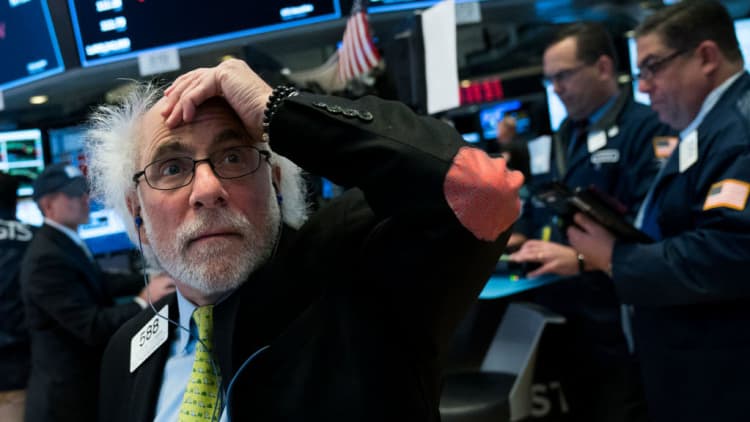It's been a volatile year for the stock market, and it's not over yet. The S&P 500 closed just above its 2018 low on Tuesday, and both the Dow Jones Industrial Average and the S&P 500 are on pace for the worst December performance since the Great Depression in 1931.
"It's not a safe market. It's a treacherous market," said CNBC's Jim Cramer. "This is the most treacherous market I've seen in a many a year."
Former Federal Reserve chief Alan Greenspan warned investors that it's unlikely that the market will stabilize and then take take off again. Markets could still go up but, he said, "at the end of that run, run for cover."
Still, for the average person, there's no reason to panic. In fact, the No. 1 thing you should do with your money is absolutely nothing, Greg McBride, CFA and chief financial analyst at Bankrate, tells CNBC Make It.
"Individual investors' biggest enemy in a market correction," or when the market is down more than 10 percent from a high, "is going to be themselves," McBride says. "The worst thing you can do is the panic-selling, knee-jerk reaction."
It's natural for the market to have ups and downs, McBride explains. But if you rush and sell the minute a downturn starts, you're left out when stocks rebound a week, month or year later.
Individual investors' biggest enemy in a market correction is going to be themselves.Greg McBridechief financial analyst at Bankrate
Typically, it takes a stocks an average of 121 days, or four months, to recover from a correction. If a downturn becomes a bear market, which is when stocks fall 20 percent or more from a high, it takes an average of 22 months, which is less than two years, to recover.
Instead of watching the market's every move, it's more important to keep your eye on are the underlying factors that drive the economy, which are "really positive" right now, McBride says. "Unemployment is really low, the economy is growing, people are spending money. Ultimately, that's good for the economy and good for the stock market."
When you invest, do it for the long haul, McBride says. "Even in the face of doomsday forecasts of a recession, markets tend to recover all of that within 5 years. If you're investing for decades, who cares?"
Even in the face of doomsday forecasts of a recession, markets tend to recover all of that within 5 years. If you're investing for decades, who cares?Greg McBridechief financial analyst at Bankrate
So if you're still 20, 30, or 40 years away from retirement, keep your hands off your 401(k).
However, if you're close to retirement or have shorter-term financial goals, make sure to safeguard that money by keeping it in very conservative investments or cash, rather than in stocks, McBride says. That includes any money you'll need within the next 10 years.
The bottom line is that stocks are good long-term investments, but you have to remember to think long-term as well. "In the short-term, markets can be very volatile, but over the course of decades, you're rewarded for your patience and discipline," McBride says.
Like this story? Subscribe to CNBC Make It on YouTube!
Don't miss: Warren Buffett and Ray Dalio agree on what to do when the stock market tanks




